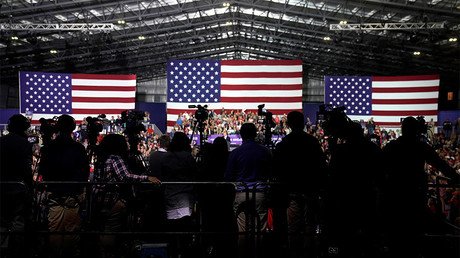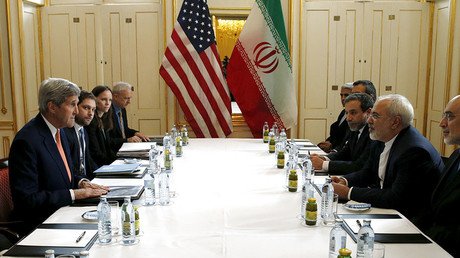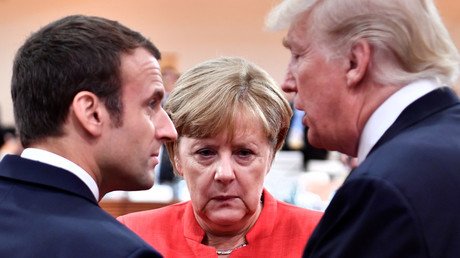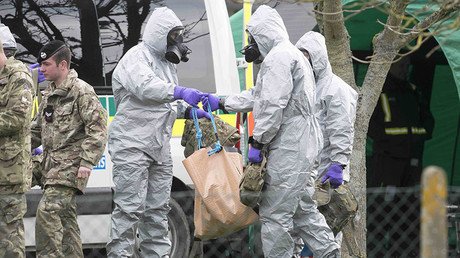Wag the Donald: Netanyahu builds shaky case against Iran
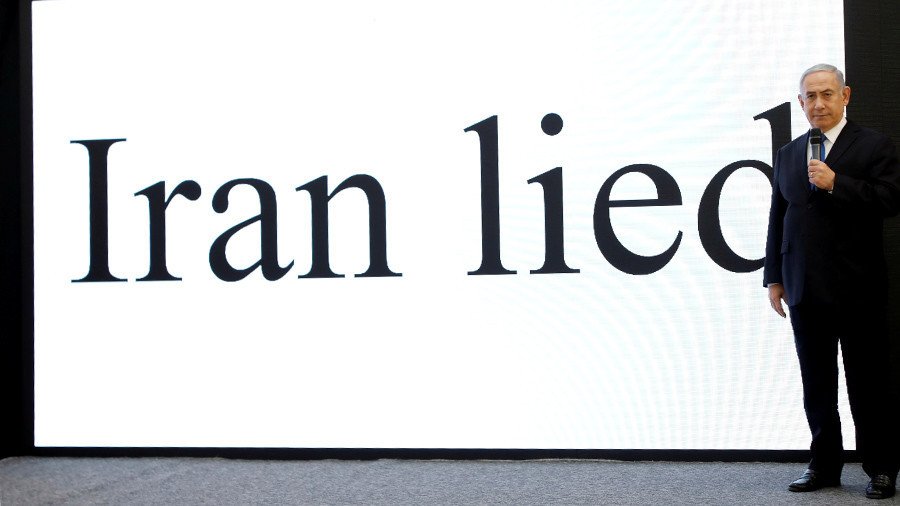
As Trump prepares to decide the fate of the Joint Comprehensive Plan of Action (JCPOA), otherwise known as the Iranian nuclear deal, Israeli Prime Minister Benjamin Netanyahu has been busy building a case against Tehran.
“Nations that didn’t act in time against murderous aggression against them paid a much higher price later on,” the Israeli leader said on the weekend. “We don’t seek escalation, but are prepared for any scenario.”
This sort of rhetoric has been part of an ongoing cause célèbre for the Israeli leader ever since Iran, together with Russia, received an invitation from Syrian President Bashar Assad to help liberate his country from an unholy alliance of various terrorist groups, not least of all Islamic State (IS, formerly ISIS).
Today, not only has Syria freed a wide swath of its territory from IS control, it continues to have an Iranian military presence inside of its country. This has been the source of tremendous anxiety for Israel, which shares a border with Syria in the shadows of the contested Golan Heights. At the same time, Israel also accuses Iran of using Lebanese and Palestinian proxies to target Israel from Lebanon, the West Bank and Gaza.
If all that were not enough, Netanyahu was further spurred to action following separate visits last month to the White House – first by French President Emmanuel Macron and then German Chancellor Angela Merkel – EU leaders who hoped to smooth talk Trump into salvaging the Iran deal. That effort seems to have gone nowhere.
With very curious timing, and resorting to the usual theatrics and props, the Israeli leader put on public display thousands of pages of documents he claimed were “spirited out of Iran” by Israeli intelligence in January.
According to Netanyahu, the mountain of documents “conclusively prove that Iran is brazenly lying when it said it never had a nuclear weapons program.”
And just in case anyone in the audience failed to get the message, Netanyahu’s prop department had the words “Iran Lied” emblazoned on a massive billboard-sized computer screen directly behind him. It didn’t take long, however, before social media memes shortened the message to read “I Lied.”
Theatrics aside, even if it were true that Iran had been working on a nuclear bomb some 15 years ago, it would certainly not be the first country in the Middle East to have succumbed to such a temptation. In fact, Israel is known to possess nuclear weapons, although the exact number remains unknown.
In March 2015, former US Secretary of State and four-star general Colin Powell reportedly stated in an email while discussing the prospects for a nuclear deal with Iran: “The boys in Tehran know Israel has 200 [nuclear weapons], all targeted on Tehran, and we have thousands.” It was for that reason, Powell rationalized, that the Iranians would “never use a nuclear weapon even if they had one” because it would mean national suicide.
Moreover, although Netanyahu’s presentation makes the case that Iran was pursuing a nuclear weapon in 2003, the situation has completely changed with the signing of the JCPOA.
Under the terms of the agreement, Iran must eliminate its stockpile of medium-enriched uranium, while cutting its stockpile of low-enriched uranium by 98 percent. To verify Iran's compliance with the agreement, a team from the International Atomic Energy Agency (IAEA) will be granted regular access to all Iranian nuclear facilities. In other words, there is simply no way Iran could conduct research to build a nuclear weapon without the IAEA finding out about it. Thus, it would seem that Netanyahu’s concerns over Iran has more to do with the Islamic republic’s military presence in Syria and very little to do with Tehran’s non-existent nuclear weapons program.
Iran’s presence in Syria, however, never would have happened in the first place had the United States and Israel demonstrated the same amount of concern over the rise of IS as it now does with Iran’s rise. Indeed, how was it remotely possible that IS was not only able to gain access to Syria across many miles of open desert from Iraq, but was also able to create a profitable oil-export business on the side?
In February 2015, Professor Michel Chossudovsky laid out the military situation in cold relief: “The Syro-Arabian Desert is open territory. With state-of-the-art jet fighter aircraft (F15, F22 Raptor, F16) it would have been – from a military standpoint – a piece of cake, a rapid and expedient surgical operation, which would have decimated the Islamic State convoys in a matter of hours.”
What we have witnessed instead, he argues, is a “drawn out six months of relentless air raids and bombings, and the terrorist enemy is apparently still intact.”
Chossudovsky went on to make an interesting comparison to the 1999 NATO bombing campaign of Yugoslavia, which was equipped with a far superior military than that of IS. Yet after three months of sustained bombing raids on the capital Belgrade, the government was forced to capitulate.
In any case, with the clock ticking on the Iranian nuclear deal, the one country that will be watching Trump’s move most intently is North Korea.
In a stunning move last month, North Korean leader Kim Jong-un and South Korean President Moon Jae-in committed their two countries, which had been technically at war for the last 68 years, to eliminate nuclear weapons on the peninsula, and pledging to sign a formal peace treaty later this year.
If Trump does decide to unilaterally abrogate the nuclear deal with Iran, Pyongyang may seriously question what kind of long-term deal it can expect to achieve with Washington.
Trump, as a shrewd businessman who authored ‘The Art of the Deal,’ should understand the importance of abiding by the terms of a contract, lest others fear their own contracts were – as the Native Americans once described their own failed dealings with Washington – “written on the wind.”
The statements, views and opinions expressed in this column are solely those of the author and do not necessarily represent those of RT.

